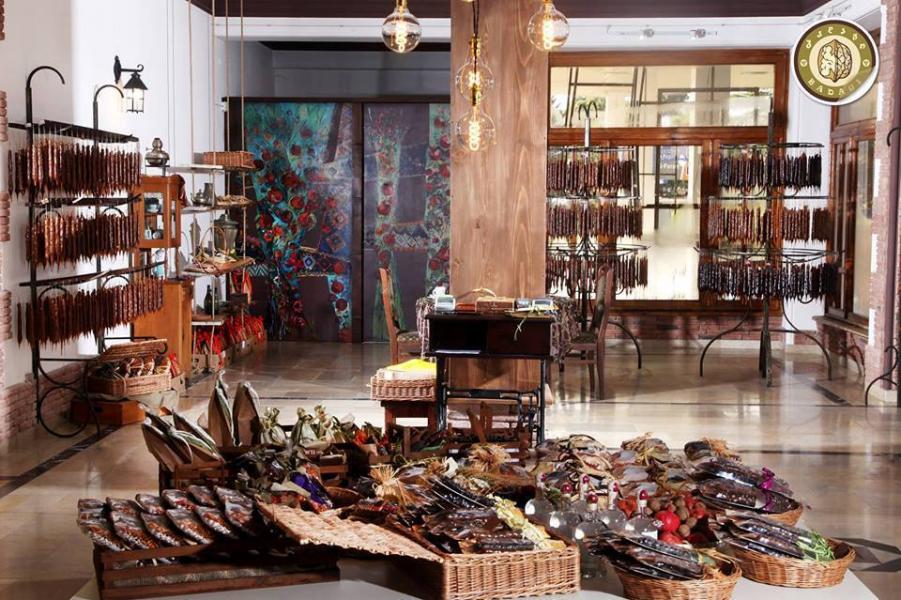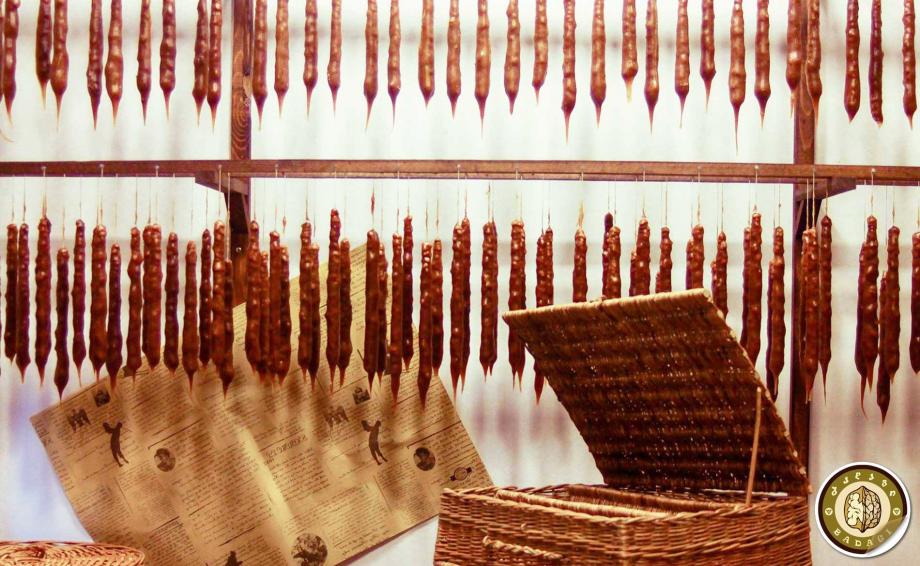Georgia is celebrated for its culinary traditions. Each of its regions has its own unique speciality and iconic dish. In the west, a variety of khachapuri, a cheese-filled bread, is offered to guests, while the Kakheti region is the country’s wine-making hotspot.
Nowadays, you can find the traditional sweet known as churchkhela almost everywhere in Georgia but the Kakhetian recipe is considered to be the oldest and the most delicious.
Anyone who has ever visited Georgia and has a sweet tooth will never forget the taste of churchkhela, a string of nuts or walnuts dipped in thickened grape juice.
‘’In Georgia, churchkhela production is both a great responsibility and challenge – expectations [for] the product’s quality and taste are very high,’’ said Inga Kajrishvili, CEO of Badagi.
The story of Badagi goes back to 2011. Within a short period it became the leading firm specialising in traditional sweets, with a production facility in the wine-growing region, five stores in the capital and one in the seaside town of Batumi. The company received the 2016 Georgian Product of the Year award from TBC Bank.
‘’When looking back, not many can believe that it all started with just one employee,” said Ms Kajrishvili. “Now over 130 people work for the company. If in the early days, we produced 500 churchkhelas per week, now we reach 5,000 daily. From the start, the idea was to produce a natural traditional product and churchkhela was an obvious choice.”
But as the CEO explains, the dramatic growth created problems with the organisational structure and business processes. However, she discovered what the EBRD could offer to overcome these difficulties, through the Women in Business programme, funded by the European Union as part of its EU4Business initiative.
Fifteen years on the ground
Assistance for small business is at heart of the EBRD’s operations. With generous support from donors – the EU under its EU4Business initiative, the Early Transition Countries Fund, the Small Business Impact Fund and Sweden – the Women in Business programme offers advisory and financial support to small and medium-sized enterprises (SMEs) in Georgia that want to transform and realise their ambitions.
The EBRD’s SME Finance and Development group has been working with Georgian firms for the past fifteen years, and has enabled more than 1,150 advisory projects – half of them outside the capital and around 20 per cent implemented with female entrepreneurs.
“Access to knowledge and expertise is one of the preconditions for businesses to be effective and successful,” said Severian Gvinepadze, Principal Manager, Advice for Small Business, in the EBRD’s Tbilisi office.
“We work with a wide range of enterprises to support their efforts of aligning with European standards, and fostering innovation and competitiveness, both on export and local markets,” he added.
"With the programme, we were able to support Georgian SMEs in their ambitions to increase competiveness, establish stronger economic ties with the EU and run truly efficient and modern businesses,” added Vincent Rey, Head of Cooperation at the Delegation of the European Union to Georgia. “The EBRD is a key partner for the European Union’s EU4Business initiative, an umbrella initiative that covers all EU activities supporting SMEs in the Eastern Partnership countries.”
For Badagi, involvement in the programme meant stepping up their business operations and learning better ways of doing things.
The results speak for themselves: continuous growth, constant demand and satisfied customers.
Plans are in place to offer various dried fruit products and make Georgian traditional sweets popular with a wider audience in Europe and around the world.
“We are happy to sweeten the lives of our customers,‘’ said Ms Kajrishvili, summing up the company’s motto.
Author: Nina Tsintsadze, EBRD




